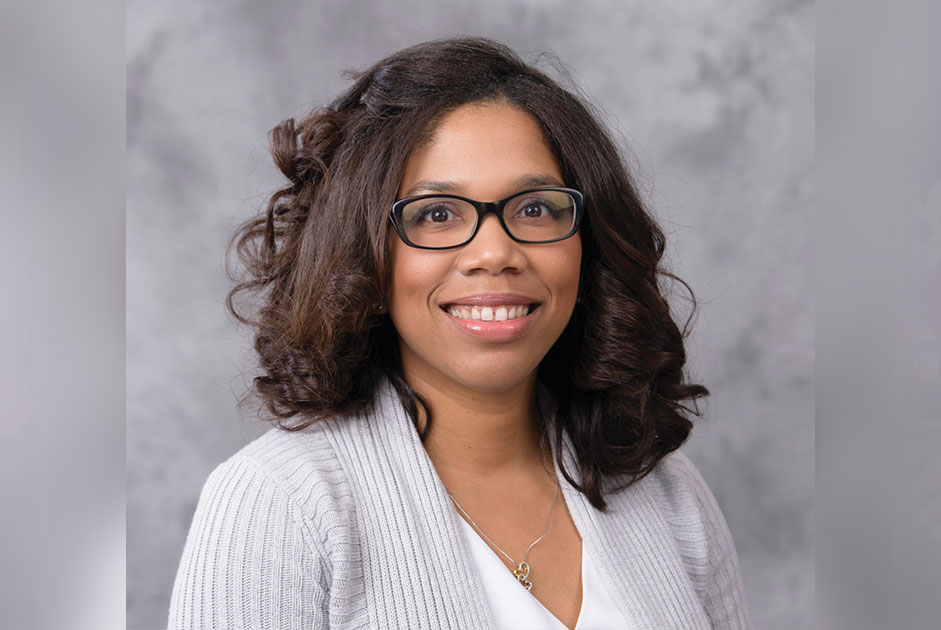Doris Molina-Henry, PhD, and Assistant Professor in the Department of Physical Therapy at Winston-Salem State University (WSSU), possesses a knack for languages. She excelled as a young girl growing up in the Dominican Republic in interpreting for an English-speaking medical team abroad, called Healing Children Midlantic, during their annual trips to her small hometown. With encouragement from a team member, Arch Aitcheson, Dr. Molina-Henry applied to one college in the US. Her voice (and her brain) “literally” brought her to the US, where she earned a scholarship to Elon University, then completed her PhD and post-doctoral training at Wake Forest University Department of Neurobiology and Anatomy. Dr. Molina-Henry is an Afro-Caribbean Latina woman who dreams big! With a supportive family, both in the Dominican Republic and here in North Carolina, Dr. Molina-Henry is making a difference in our community. Influenced by her father who battles a degenerative spinal condition and who never saw obstacles from his wheelchair – only challenges to navigate around – Dr. Molina-Henry is giving a voice to underserved adults in our community who are at risk for cognitive decline. She reports that, “African Americans are twice as likely to experience dementia when compared to Caucasian Americans, while Hispanic-Americans are 1.5 times as likely, both groups suffering from earlier onset.”

Dr. Molina-Henry researches how lifestyle changes can help protect brain health in older adults who are at increased risk for cognitive decline, part of the Wake Forest School of Medicine and the U.S. Pointer clinical study. She is part of the Wake Forest U.S. POINTER Sleep sub-study team, whose focus is on the relationships between sleep and the ability of the brain to combat dementia. Additionally, she is exploring potential markers in blood and cerebrospinal fluid that might be involved in the cognitive benefits of aerobic exercise. While just recently, a drug that may treat Alzheimer’s disease was approved by the FDA, “decreasing the risk or delaying the progression through lifestyle changes is important research, especially for underserved populations who are not always well represented in medical trials or who lack access to early cognitive screenings and adequate medical care.” Lifestyle interventions help manage modifiable risk factors for Alzheimer’s disease and other dementias including poor eating habits, sedentary lifestyle, cigarette smoking and sleep disturbances. She urges older adults who experience changes to their thinking and memory to ask their primary care provider about cognitive screenings earlier rather than later, as earlier detection and intervention can help reduce the risk of progression. You don’t have to be a scientist and an interpreter like Dr. Molina-Henry to understand that lifestyle changes can potentially help the brain combat functional decline through better sleep (when the brain clears harmful proteins), more oxygen (through physical activity and better cardiovascular function), and healthier food choices (nutrients the brain needs to function). Statistics reported in March 2021 by the Alzheimer’s Association speak loudly to the need for this research:

2021 Alzheimer’s Disease Facts and Figures: At a Glance: Prevalence, Incidence and Mortality
- An estimated 6.2 million Americans age 65 and older are living with Alzheimer’s dementia in 2021.
- More than 1 in 9 people (11.3%) age 65 and older has Alzheimer’s dementia.
- Two-thirds of Americans over age 65 with Alzheimer’s dementia (3.8 million) are women.
- Deaths due to Alzheimer’s between 2000 and 2019 has more than doubled, increasing 145%.
- 1 in 3 seniors dies with Alzheimer’s or another dementia.

Dr. Molina-Henry grew up in a family that always gave to others, despite not having “extra” to give away. She gives of herself to her physical therapy students at WSSU, to her Wake Forest and WSSU colleagues, to her family here in the US and in the Dominican, and to her research. She hopes her pursuits will change the quality of life and health outcomes for adults and caregivers battling cognitive decline, especially those who are medically underserved. She is blessed with the ability to think creatively and talk rapidly! Muy bueno, Dr. Molina-Henry! Our community will benefit from hearing your voice and learning more about how we can combat dementia.

Resources: alz.org ; News | Alzheimer’s Association; U.S. POINTER Study | Alzheimer’s Association
Email: pointerstudy@wakehealth.edu
























